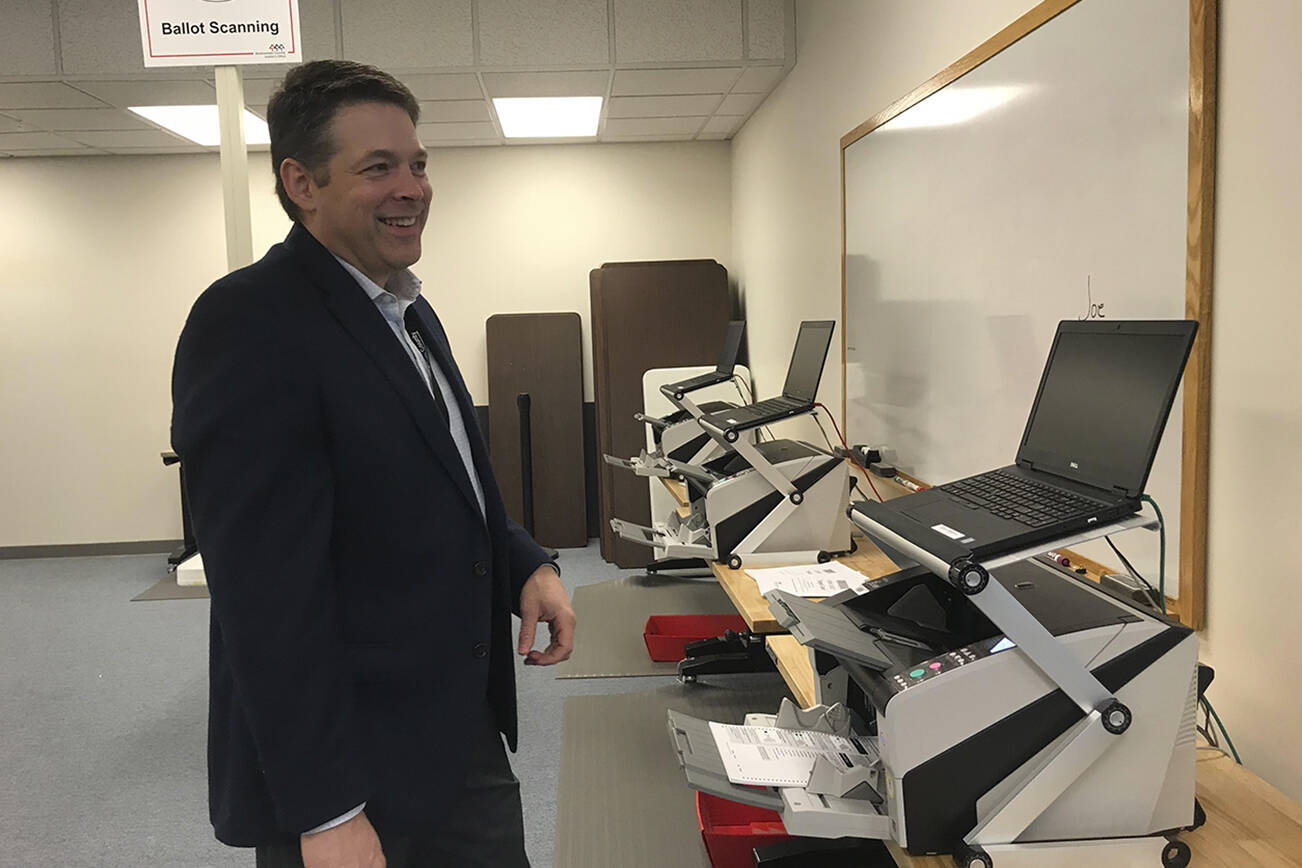By The Herald Editorial Board
Now more than a year after the 2020 general election, the quest continues for evidence that would support the allegations that voter and election fraud cost Donald Trump the presidential election. Those allegations have grown to more general distrust on one side of the political spectrum and concern on the other for the nation’s — and Washington state’s — election systems.
That’s clear in a crush of public records requests to elections offices in the state’s counties and a raft of bills this session regarding elections in the state Legislature.
While public records requests are not uncommon for all Snohomish County departments, the requests to the county’s election office saw a jump following the 2020 election, said Garth Fell, Snohomish County auditor and its chief election official. As of last week, the office — with the assistance of the county’s public records office — is working to fulfill 17 open requests, with others already completed.
“After 2020, about six months after, we started seeing more requests come in,” Fell said, many making broad demands for any and all records, lists of voters, emails and technical information regarding ballots, counting and tabulation equipment and election security measures.
“It’s information that most would be uninterested in, some of it Greek to most people, including to many of us in the office,” Fell said.
Still, the office works to honor the requests.
“The public records law is truly important, and it’s a critical tenet of transparency in our government. So, I support it,” Fell said. “It’s an important tool the public has to understand what’s going on in government.”
Snohomish isn’t unique in seeing a surge in requests; most election offices in the state are seeing a similar jump in requests under that state’s public records law, according to a report last week by public radio station, KNKX (88.5 FM). For some counties, the report found, election offices have had to assign employees full time to the task.
“People ask for records because they’re trying to learn something or are trying to accomplish something,” Fell said.
To date, such requests don’t appear to be revealing evidence of fraud. Not that other evidence refuting fraud has been readily accepted by some. The claims have persisted despite assurances from federal election security officials that the 2020 election was among the most secure in the nation’s history; certitude from state and county government officials — Republicans and Democrats — that elections were fair and accurate; and rulings in more than 60 courts — some of them by Trump-appointed judges — that dismissed fraud allegations as having no merit. And when the Associated Press examined cases of voter fraud in six states where Trump had challenged the results, of 25 million votes cast, only 475 potential instances of voter fraud were found.
Even absent evidence, the doubts persist, noted Paul Gronke, a professor at Reed College in Portland, Ore., in the KNKX report.
“We are not going in a good direction right now when we have leading members of the Republican Party, one political party, unwilling to publicly accept the validity of a presidential election that was certified,” Gronke said.
The result, notes the Pew Research Center, is tension between those who want to improve voter access and those more concerned with election security.
A Pew survey from last March found deep partisan divides over access and security issues. Asked if changes to election rules to make voting more accessible would make elections less secure; 61 percent of respondents said increasing access would not make elections less secure; but only 37 percent of Republicans and those leaning Republican agreed, while 82 percent of Democrats and those leaning Democratic agreed.
That split is also reflected in the tranche of legislation this session regarding elections.
More than 20 pieces of legislation, most of it sponsored by Republicans in the House or Senate, sought reforms regarding security, including measures for election audits, watermarks and digital codes on ballots and even a bill that sought to end the state’s vote-by-mail system and return to in-person voting at polling places. With Democrats in majority control of both chambers, few of those bills received much consideration and failed to advance.
Legislation that has advanced looks to changes more focused on access, fairness or transparency, including redistricting, changes to voters pamphlets, ballot drop boxes, a proposal for ranked-choice voting in select local elections and one bill barring the open-carry of firearms at county and state election offices as well as local public meetings.
One significant bill, sought by Gov. Jay Inslee and sponsored by Democrats, called for a more direct approach against the Big Lie, making it unlawful for public officials and candidates to knowingly make false statements about elections and the election process. But it — rightly, in the editorial board’s opinion — shared the same fate as the Republican legislation, failing to find enough support to advance.
Restoring confidence in elections can’t succeed solely on legislation. Or even on access to public records.
“It’s important to understand,” Fell said, “that to get to true understanding, it takes more than getting access to some documents.” The data and information requires context and explanation, and that takes a lot of work, the county auditor said, mentioning the role of the media in helping to provide that context and detail.
“The best thing we can continue to do is to be transparent in our processes,” Fell said. “And that includes not just public records but also making sure that we’re open to observation and sharing information on our processes and continuing to open the doors on how voting works in this country.”
And like everything else in our lives, it takes practice, such as marking and submitting our ballots for each election.
Talk to us
> Give us your news tips.
> Send us a letter to the editor.
> More Herald contact information.

























